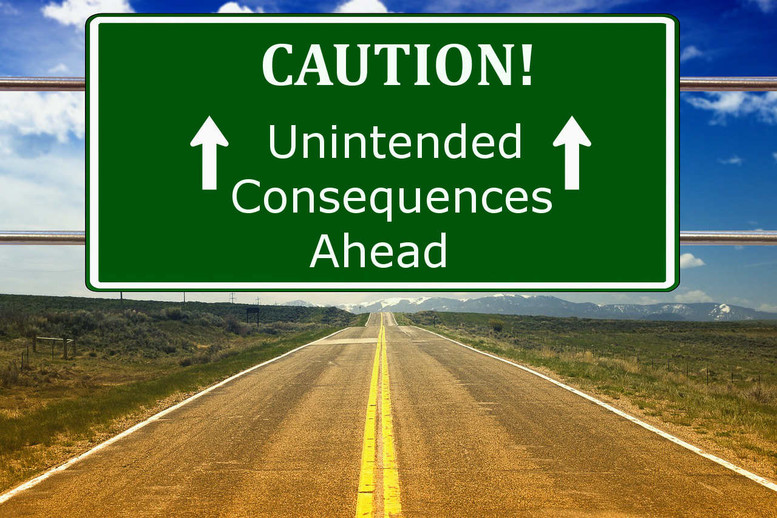Happily, we live in a world where our knowledge of illness, and its treatment options, are so far advanced that we’re able to protect ourselves the majority of the time. Think how far cancer treatment has come, even in the last few years. Think about how many conditions are managed effectively through pain control. Think about the advent of antibiotics, even a century ago it wasn’t possible to hook them up to a drip of combined medicines, and going further back any bacterial illness was a potentially life-threatening thing. Think about healing broken bones. Think about eradicating things like Ebola and smallpox. These are all food for thought - but so are the advances in contraception, something which has been used since the dawn of time. There wasn’t any polyurethane back then, so lambskin condoms were popular, they were put onto the penis like any conventional condom, but then they were tied at the bottom to stop them falling off – you can imagine how that went without needing much imagination!
The point is that we have significantly more sophisticated treatment options than have previously existed. Condoms, for example, have ricocheted into the top spot for all-round protection, with a plethora of them on the market: coloured ones, flavoured ones, tingling sensation ones, ribbed and dotted ones, small and large – the list goes on. You’re virtually guaranteed to find the right one for you among what is being manufactured today. Which is good, because condoms are the only form of contraception that protects against both pregnancy and STIs – which is where we’re going now. What exactly are the consequences of not using contraception? NOT USING MORNING AFTER PILL
- 1.Let’s start with the obvious one – pregnancy. It’s very easy to skim over what you think are the realities of having a baby, but the actual realities are often very different indeed. To start with, it’s not just a baby that you’re having - it’s a baby, a child, a teenager and an adult, all wrapped up into one embryo. It means pregnancy sickness, sleepless nights, sometimes months of them in a row, antenatal/postnatal depression, compromising on your lifestyle in order to buy the bits you’ll need for the baby. It puts strain on your relationship – or it deters you from seeking a new one. Having a baby changes your WHOLE life, it’s not a passing inconvenience, it will have an impact on your job, and/or your ability to even work, or on your education. You might find that you’re surviving on benefits, living hand to mouth, or you might see your career progression dwindle away to nothing and your earning potential struck down.
- And if you want to terminate, that comes with its own host of problems, both physically and psychologically. If you have a surgical termination, that comes with its own risks, or having a medical one can be very traumatising. For some people it’s the right option (and it’s great that we do have the option these days), but others don’t realise the potential scale of the problems.
- 2.Needing emergency contraception. This basically means taking a large dose of hormones, which isn’t ideal for some people. For some people it’s an easy thing, just popping to the chemist, but for others it’s harder. And the longer you leave it, the less effective the treatment becomes. You can also have a coil fitted retrospectively, but if you don’t want one for contraception, that’s probably not a great choice for you.
- 3.Leaving yourself open to infection and illnesses. Venereal disease has always been there, in some capacity or other. And over the centuries we’ve found different ways of treating it – but there are still some big ones out there, like HIV. HIV is the name for the illness before it becomes AIDS
- We could rattle on through multiple illnesses and issues caused by not using contraception, but the bottom line is that you’re leaving yourself open to risk. It’s an impossible thing to quantify, contracting AIDS is obviously more serious than chlamydia, but it’s the fact that you don’t KNOW to what extent you can potentially harm your body.
If it’s a lack of knowledge that is putting you off sorting out contraception then that’s a pretty easy one to fix. Your GP, and/or a sexual health clinic (find your nearest one here) will be able to advise you on what might be best for you, depending on your circumstances. But there are also other ways to get at this information if you feel that you don’t want to do it face to face, for whatever reason. There are SO many websites out there which contain all of the information that you could ever need! Just be careful to stick to the reputable ones, with bona fide medical information (like NHS) and avoid the ones that aren’t part of a medical network.



